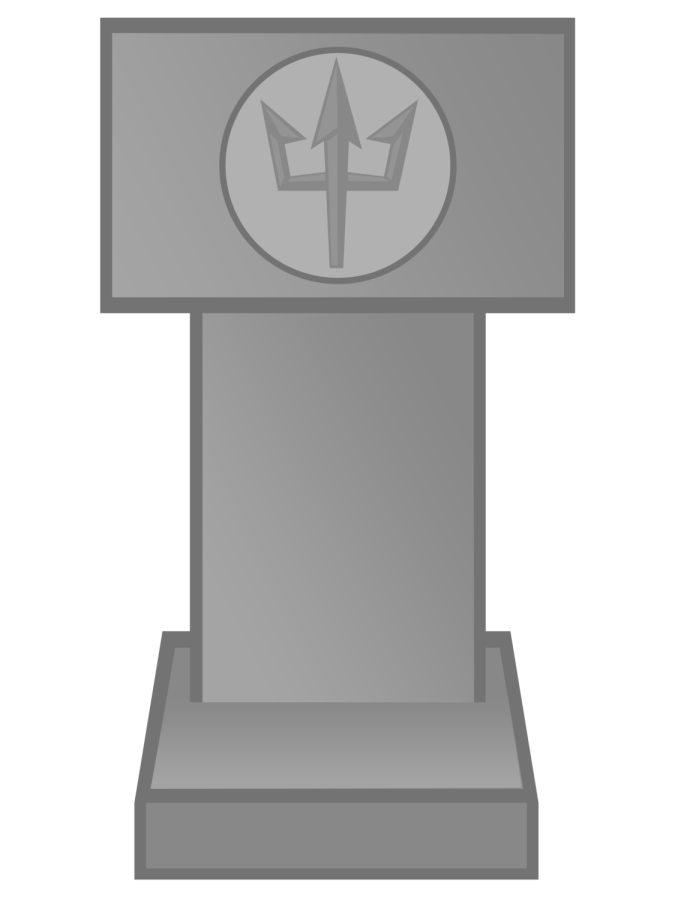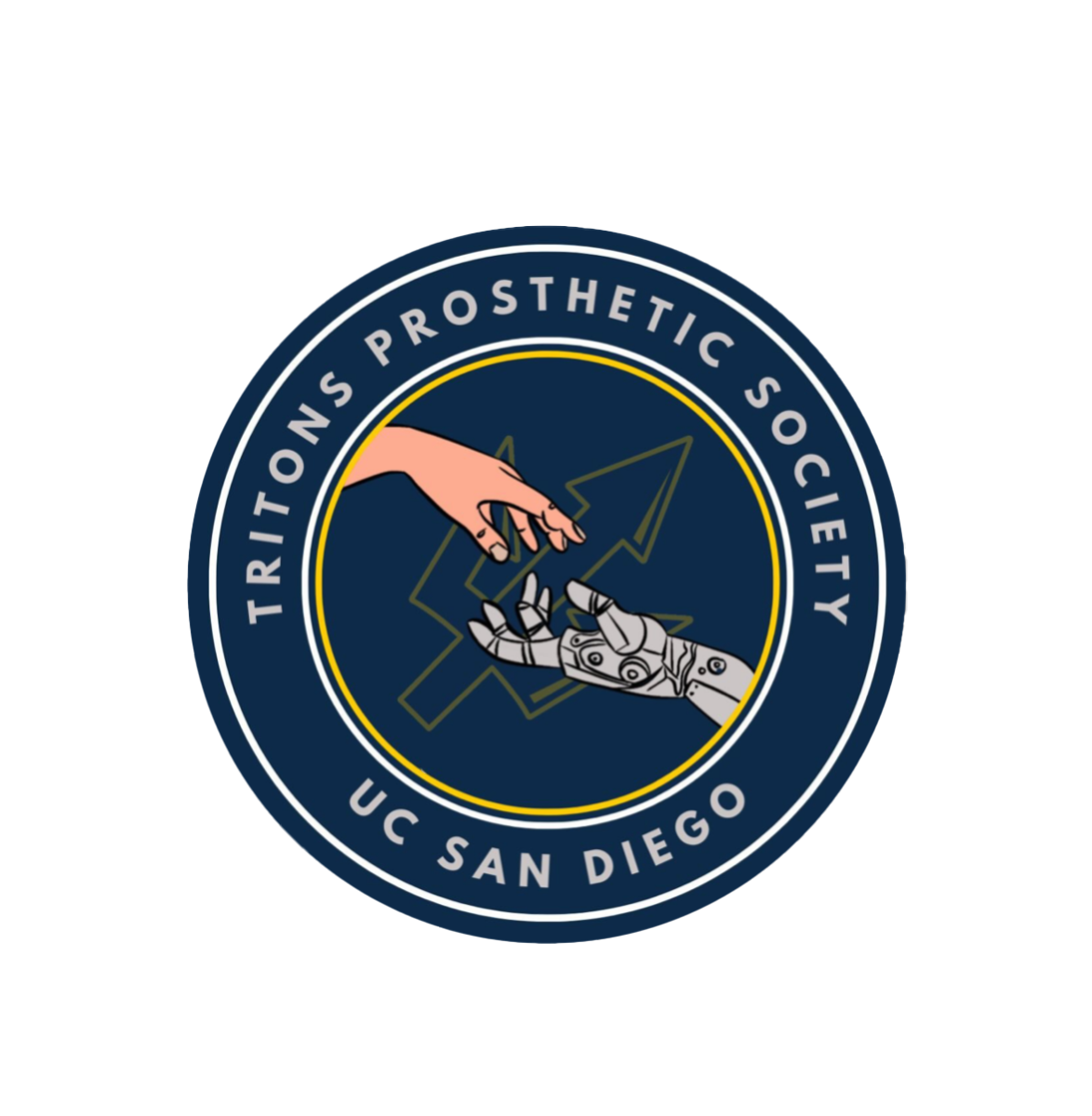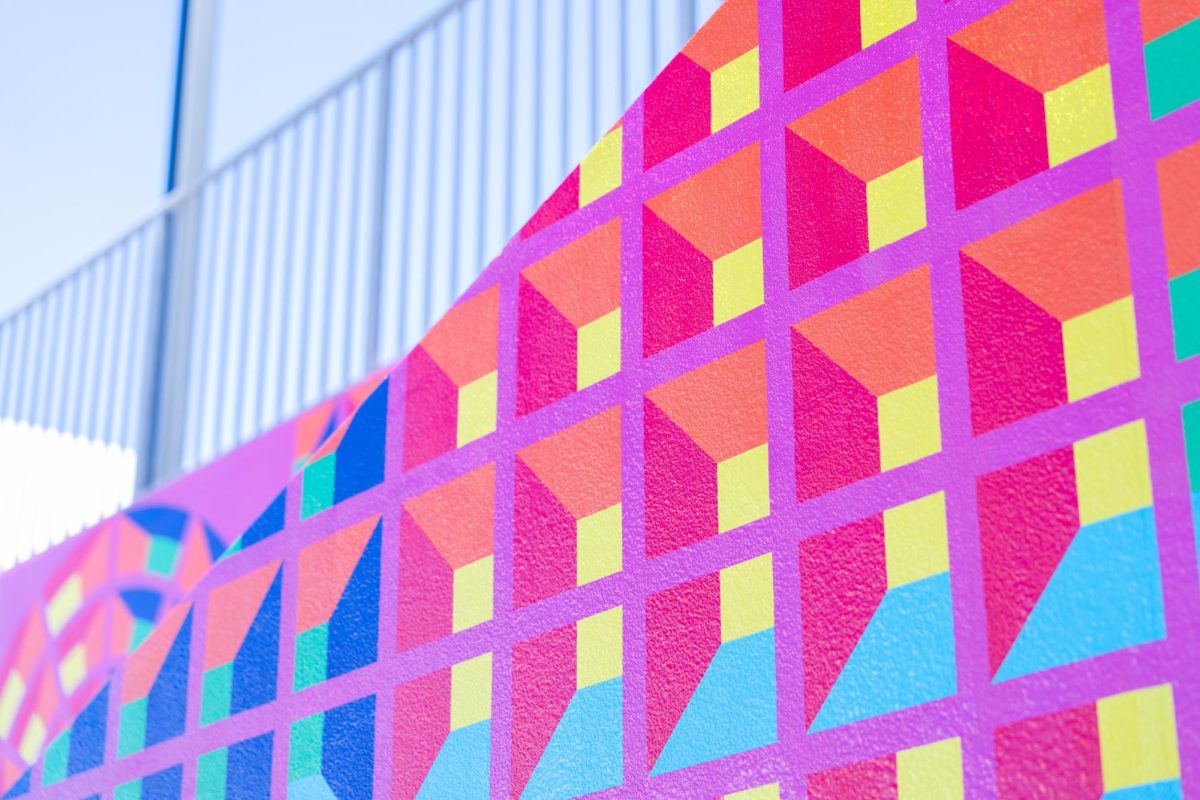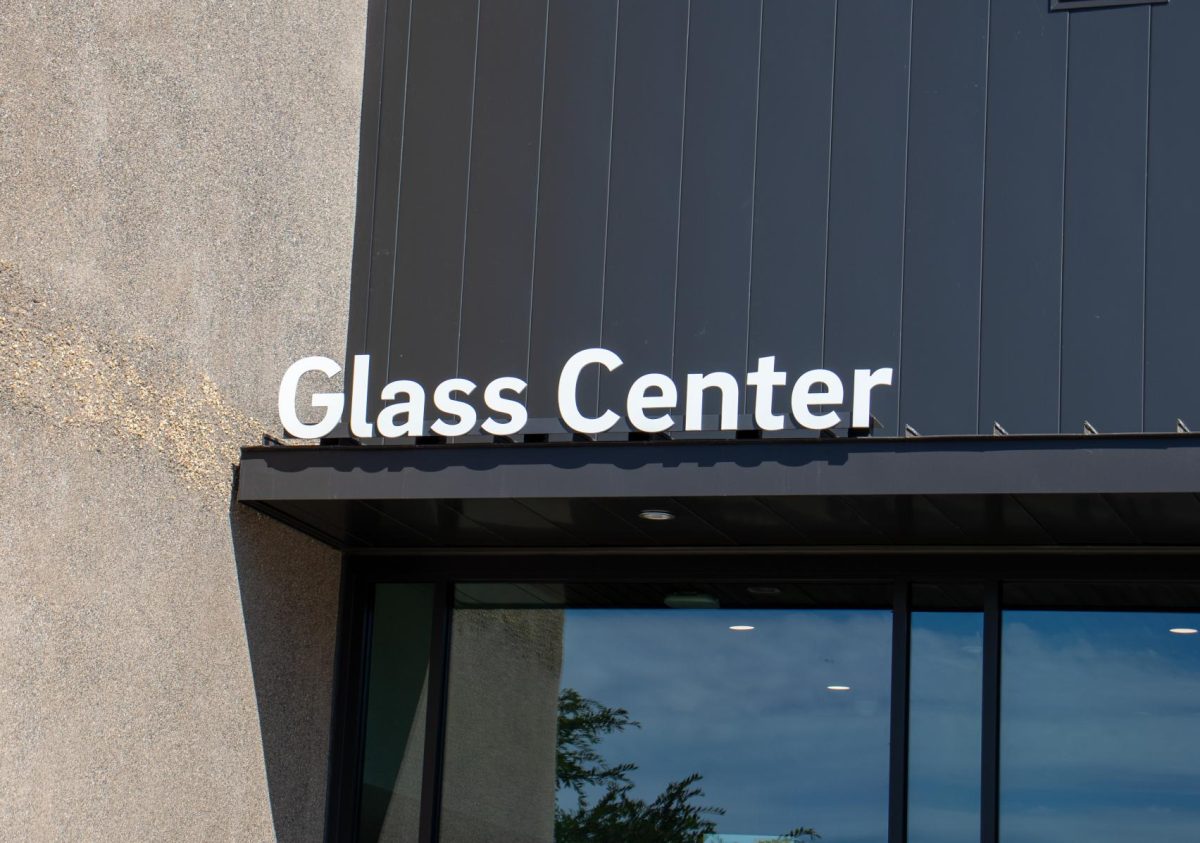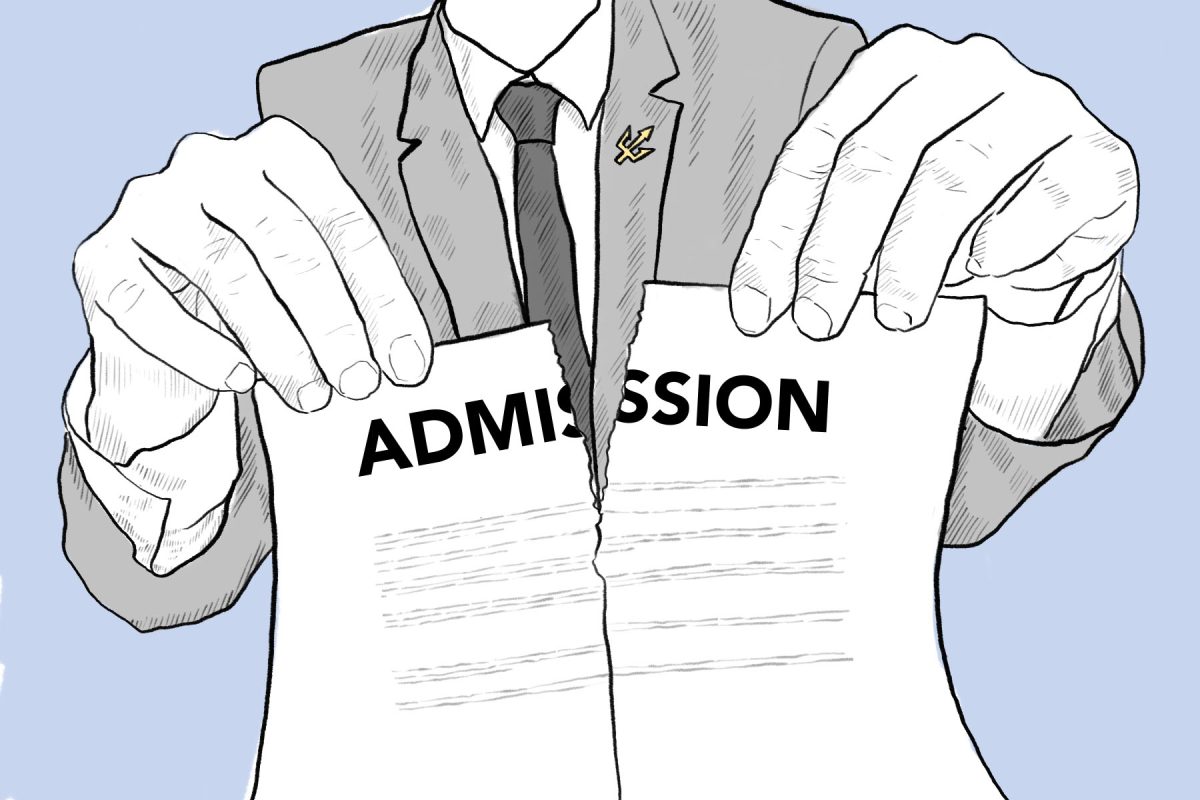“Where am I from?… I told you that was a hard question,” Mary Boyle, a professor in the cognitive science department, laughed, as she dove into a two-and-a-half hour conversation about her past. Just like her childhood, the scene on her office wall is constantly changing, since she loves to redecorate it every few years; today, one wall is covered in a Tahitian beach image wallpaper, which provides comfortable serenity.
“I guess I like to keep it changing, I’ve lived so many places that it’s nice to see it new,” Boyle said. And where is she from exactly? Well, that truly is a hard question.
Boyle was born in Venezuela and lived in countries throughout South America, including Uruguay and Chile, where she attended local schools until she was 12. Her father worked for General Motors, so they could go wherever there were cars; by the time she went to college, her father’s career brought them to Singapore, Germany, Japan, Australia and the Philippines. However, when her family moved to Belgium, she pressed pause on travel and moved to the U.S., on her own, to attend Georgetown University. At Georgetown she fell in love with computer science.
“It was the perfect place for me to go, because there were so many foreign people that I felt so at home,” Boyle said. “After that I fell in love with computer science and became like a consultant and I guess like a tutor. And then I got into special projects, and researched computational linguistics at General Motors Research … I worked on a secret project which was essentially the predecessor to Siri … which I was totally convinced was the CIA.”
After Georgetown she furthered her education at the University of Illinois, where Boyle both received a master’s degree in computational linguistics and met her husband,Tim Kraus. Afterward, Boyle moved to San Diego and obtained a Ph.D. in neuroscience at UCSD, where she labored on very hands-on projects.
“I worked on lobsters and electrophysiology, and worked on the circuitry of little robots,” Boyle said of her graduate school experience.
As if that wasn’t enough, Boyle also swam on the UC masters swim team, and worked as a Spanish teaching assistant. Later, she received a post-doc position at the Burnham Institute in La Jolla where she researched pathfinding from the retina to the brain.
The year 1997 was pivotal for Boyle, as she had her first child and started her teaching career in the newly formed cognitive science department at UCSD, where she has been teaching ever since. Since then, Boyle has watched UCSD change dramatically; having been here for more than 20 years, she has seen the university grow from around 8,000 students to its current size of 31,052.
“There have been so many changes, but I feel that the character of the school has remained,” Boyle said. “UCSD has been the center of anything cognitive science since the early ‘80s and the vibe continues to be one of looking forward and [being] open to new ideas. The other thing that I know is the students, especially [those studying] cognitive science, are incredibly passionate, and that’s pretty cool.”
Currently, Boyle resides in Carlsbad with her husband and two sons, AJ and John Paul. She brings this philosophy of the department and her own to her teaching style.
“Moving around so much growing up, I always came into the school year in the middle and was always behind,” Boyle said. “So, I think that I teach with the knowledge that maybe people just need to be caught up … I also think differently, being exposed to different languages makes it so that I can think about concepts maybe a little bit differently or [more broadly]. I think in pictures, and teach with every lecture having a story.”
Her favorite class to teach is COGS 163, Metabolic Brain Disorders, a topic which is very close to home as her father has Alzheimer’s Disease. Motivated by such a personal issue, she will bring the full force of her intellect toward understanding Alzheimer’s and other metabolic brain disorders when she retires from teaching, after her youngest son finishes high school.
Boyle can be found walking through campus with Poly Ester, a golden retriever-poodle mix service dog she is training for her father, or in her office in the Cognitive Science building.
“I love having tea with my students, and in my office hours you never talk science, so they are more like a party,” Boyle said. “I really enjoy making my office feel at home, and making my students feel at home.”
In spite of being a rolling stone for much of her life, Boyle is happy to make UCSD her home. UCSD students can count themselves lucky for having such an experienced and dedicated professor stay here for so long.
“I love it here, I really do. I would’ve thought that after moving so frequently that I would be bored in one place, but it feels so fresh.”


